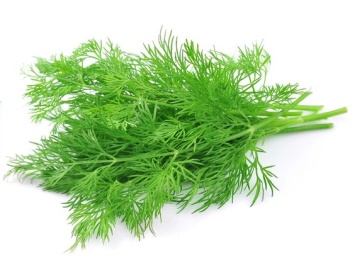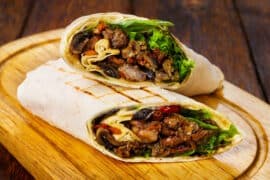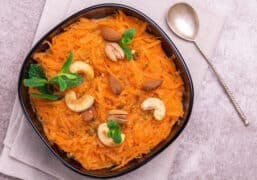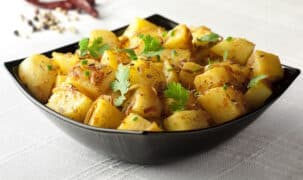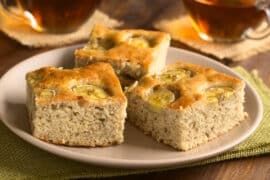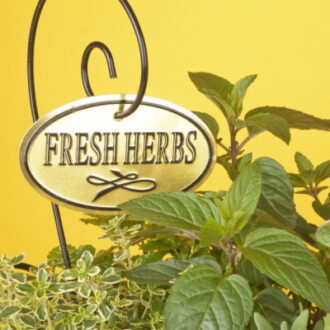Dill is more than just a tasty herb that makes pickles taste great. It’s a very healthy herb too.
Learning more about the health benefits of herbs will make want to you find more ways to include it in your diet (We’ll talk more about how to do that later).
What is Dill?
Latin name: Anethum Graveolens
Dill, sometimes also referred to as dill weed, is a herb that has been used by man for thousands of years, both for its tangy flavor as well as its medicinal properties. It is part of the same plant family as parsley, bay leaves and cumin.
It is a plant that originates and is native to the southern part of Russia, the Meditteranean and parts of western Africa. It is often used in the cuisines of eastern and northern Europe, in particular Germany, Poland, Sweden and Russia.
Dill can be identified by its soft wispy green leaves that resembles some ferns. Both the fresh leaves and the seeds are used as a seasoning. The seeds are stronger in taste than the leaves and are quite aromatic. Once the seeds are dried they are light brown in color and oval shaped. The flavor of the seeds is somewhat sweet with a touch of citrus. They taste a bit like caraway seeds. Both caraway and dill seeds are used frequently in the cooking of the countries mentioned above.
People have been using dill as both a delicious herb and as a healing agent for more than two thousand years. Dill is mentioned in ancient Egyptian writing and was a popular seasoning and healing herb in both Roman and ancient Greek societies. Even Hippocrates, who is referred to as the father is medicine, used dill in his healing in ancient times. It is an ingredient in a recipe he offered as a cleanser for the mouth.
The Healing Properties of Dill
Dill contains organic compounds as well as minerals and vitamins that provide us with many health benefits. It has a high content of Vitamin C and Vitamin A, as well as some iron, folate and manganese.
Great for Digestion
The essential oils contained in dill activate the secretion of bile and other digestive fluids that are vital to the proper breakdown of the foods we consume.
These same digestive juices stimulate the motion of the intestine, which promotes regular bowel movements and helps to relieve constipation. The dietary fiber in dill aids these processes as well.
Bone Health
Dill is a good plant based source of calcium. Calcium helps to keep our bones from becoming porous as we age, which reduces bone loss.
Anti-Bacterial Properties
The anti-bacterial properties found in dill’s essential oils are a disinfectant as well as a germicidal. In ancient societies burned dill seeds were applied to wounds to prevent infections. And remember Hippocrates using it as a major ingredient in his recipe for an oral cleanser? Dill’s germicidal qualities could help to preserve healthy gums and prevent general bacterial growth in our mouths and throughout our body.
Hiccups and Gas
Dill has long been used as a traditional remedy for hiccups. Hiccups often occur because gas is trapped in the esophagus. As it repeatedly attempts to move upward, it creates hiccups. Dill helps to relieve the gas and reduces the formation of further gas.
An old folk remedy for hiccups is to add fresh dill leaves to boiling water, leave it for a few minutes, strain out the leaves, then drink as a beverage. Some people say that drinking a few tablespoons of dill pickle juice works well too.
Better Sleep, Headaches and Calming Effects
The essential oils in dill can have a calming effect similar to chamomile. The flavonoids and B Vitamins in this herb activate the secretion of particular enzymes that have a calming effect on the body. In ancient times either chewing the seeds or drinking the brewed beverage we mentioned above was thought to relieve insomnia and promote a good night’s sleep. It may also calm the nerves that cause headaches.
Antioxidants, Free Radicals and Cancer
Dill contains something called monoterpenes as well as flavonoids. Monoterpenes stimulate the secretion of an enzyme called glutathione-S-transferase, an element that has proven to be very effective in neutralizing carcinogens in the body. It also neutralizes and eliminates free radicals, which we know can cause cancer if they build up in our body. These properties of dill make consuming it a benefit in preventing heart disease too.
Choosing and Storing Dill
As with all fresh herbs, when shopping for dill look for very fresh and feathery leaves with no yellowing or brown spots. Unlike some sturdier herbs, this one wilts very quickly after picking because of its very thin, needle-like leaves, so if the leaves look fresh but the plant is limp, simply place it in some cold water for a few minutes to revive it. Store it in the refrigerator between damp paper towels or wrapped in damp kitchen towels.
When purchasing dried dill, always try to buy it from a store with a high turnover of dried herbs and spices so it is as fresh as possible. Stored in a tightly sealed container in a cool, dark place, your dried herb will keep well for at least 6 months.
As we mentioned above, the fresh version of this herb is very fragile and will only keep for a few days. Freeze it in ice cube trays if you have a lot of it and want to keep it longer. Just add a bit of water to the cubes on top of the fresh dill and freeze.
How to Use Dill and Dill Recipes
Fresh dill can be used in many ways. It adds extra flavor to egg salad or tuna salad. It is also a nice addition to a mayonnaise based potato salad. In Eastern Europe boiled potatoes are often topped with snipped fresh dill.
Dill and yogurt make an easy, flavorful dip for vegetables. Add a bit of garlic and onion salt for extra flavor, or try Herbamare, a mix of sea salt and organic dried herbs.
This flavorful herb is perfect with almost any fish or seafood. Try smoked salmon on a bagel spread with cream cheese and topped with a few sprigs of fresh dill. It’s fabulous.
Baking white fish, salmon or trout with a bit of lemon juice and fresh dill is not only delicious but healthy too. Or, once cooked, top the fish with a light cream sauce flavored with dill.
Of course dill adds real zing and flavor to our favorite pickles too. Add sliced dill pickles to your sandwiches for extra flavor or just serve a few pickle chips alongside a soup and sandwich lunch or dinner.
Snip fresh dill over salad ingredients or a mixed vegetable salad or add it to a lemon juice and olive oil vinaigrette for a summer fresh flavor. It works well in some soups too.
Dill Recipes
Now let’s put that healthy delicious herb into action in some recipes! Here are a few of the recipes on the site that use fresh dill:
German Potato Salad
European Cabbage Soup
Meatballs with Dill and Sour Cream Sauce
Grilled Fish with Lemon and Dill
Carrots with Orange and Dill
To access all of the recipes on the site that contain dill, simply go to the search box at the top of any page and put the word dill into the search box. Click on the green magnifying glass to to the right and you will get a list of dill recipes and all the pages on the site that contain this delicious and healthy herb.
If you like this page, please take a moment to share it on your favorite social media. You can add your comments below. Thanks a lot.
![]() Subscribe to the site here (it’s Free!) and never miss a great recipe.
Subscribe to the site here (it’s Free!) and never miss a great recipe.
Look here for more information on herbs and spices.
